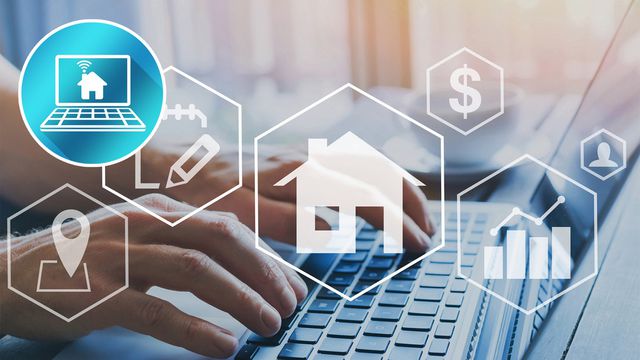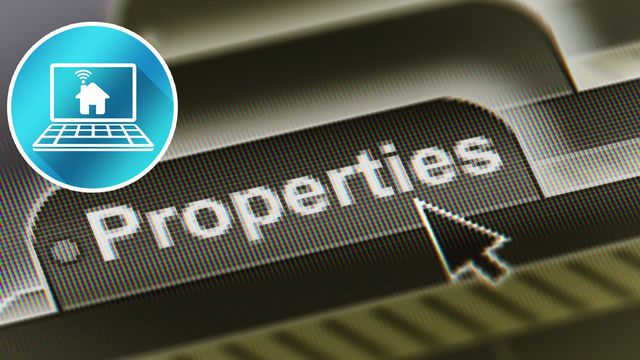What Is an iBuyer? A Guide to iBuying: The Pros, Cons, and Costs MABA Massachsuetts FirstTimeHomeBuyers RealEstate
In a nutshell, iBuying is a relatively new and different way to buy and sell homes that’s been in the news lately. If you’re a home seller who wants to sell your home fast and with minimal fuss, selling to an iBuyer is certainly one option worth considering.
Today, there are many different ways to sell a house, so it’s best to start by reviewing all your options (which are described in the Seller’s Marketplace at Realtor.com).
Traditionally, selling a house requires a number of steps—like making repairs, staging your home so that it looks its best, holding open houses, soliciting offers, negotiating with home buyers, and signing a purchase agreement—plus overcoming any roadblocks along the way. Even if you hire a real estate agent to help you navigate this process, selling a house can take time and work, and some maneuvering before you cross the finish line.
Selling real estate to an iBuyer, though, is typically a more streamlined transaction. Here’s how the process usually works: You go to an iBuyer’s website, plug in your home’s address, and fill out a questionnaire about your home.
Within about 24 hours, you will receive a cash offer on your home. (The “i” in “iBuyer” stands for “instant,” which is why they’re also called “instant offers.”) From there, you can decide whether or not to move forward with the deal. Depending on your preference, the transaction can close in a matter of days.
The big downside of iBuying is that all this convenience may come at a price. Selling to an iBuyer may mean you make less money on your sale than through the traditional route—working with a real estate agent who preps your home for sale and negotiates the best offer.
Wondering whether selling your home to an iBuyer is right for you? Here, we’ve outlined the pros and cons of iBuyers and instant offers, to help you as a homeowner to make the right decision.
How iBuying began
Opendoor, which was launched in 2013, was the first major iBuyer to market. Since then, a number of others have entered the business. This includes new online companies like Offerpad and Knock, as well as some traditional real estate firms and brokerages, like Keller Williams and Coldwell Banker.
Nonetheless, the industry leader Opendoor has expanded to over 40 cities across the United States. (Here’s a full list of where it operates.) Even in cities with the highest percentage of iBuyer transactions such as Phoenix, iBuyers comprise only about 5% of all sales. Still, some experts say iBuying will continue to grow, up to a point.
“What we see happening is iBuying will expand to more markets over time,” says Rob Barber, CEO at ATTOM Data Solutions, a nationwide property database. “Consumers will become more educated as to what iBuying entails, and local real estate professionals will increasingly try to get in front of iBuying and walk a seller through the process.”
Nonetheless, even once the iBuying industry has matured, Barber says he does not see iBuying ever accounting for more than 15% of all real estate transactions, since it will only appeal to certain types of sellers.
How iBuying works

anyaberkut/iStock; realtor.com
Simply put, iBuyers are companies that have the financial means to buy homes in cash. To formulate an offer, iBuyers typically rely on similar properties in your local real estate market, or “comps,” much as a real estate agent would in order to formulate a listing price on a home (or an offer).
After a home is purchased by an iBuyer, in most cases these companies will do some renovation work to optimize the resale price, then list the property on the multiple listing service (MLS). Some iBuyers hire third-party real estate agents to sell their homes, while others employ their own on-staff listing agents. Generally, these listings indicate in their description that the seller is an iBuyer.
Instant offer options
iBuying and other forms of instant offer programs work in a variety of ways that resolve several distinct pain points that home sellers can encounter. Here are three leading approaches, and the sellers they’re best suited for:
Type 1: Traditional iBuying
Best for: Home sellers who need to sell their home fast
Let’s say you’ve been hired for a job in a new city and need to sell your home within a week. A traditional iBuyer can get the job done. With a traditional iBuyer (like Opendoor), you get a cash offer on your home within a day or two, and you can use that influx of cash either to rent or to buy a new place elsewhere.
Type 2: Trade in
Best for: Home sellers who want to buy and sell at the same time
Home sellers who want to sell their current home and buy a new one often struggle to time these two events simultaneously. That’s where the trade-in approach of certain iBuyers (like Knock) can help. In a nutshell, they’ll make an all-cash offer on a new home you want. If the offer is accepted, you move into your new home, and the iBuyer works on selling your old house. Once it sells, it settles any costs incurred prepping your old home for sale, and then transfers your new house to your name.
Type 3: Bridge financing
Best for: Home sellers who want to buy and sell at the same time but maximize profits
This type of iBuyer (like Homeward) is similar to a trade-in, in that the iBuyer fronts you the money to purchase a new house. The difference is that if your offer is accepted and you move in, you then lease the house from the iBuyer and list your old home using a traditional real estate agent. If your old home doesn’t sell within a certain period (typically six months), the iBuyer will buy it off you at a pre-agreed price, giving you the capital you need to end your lease and get a traditional mortgage for your new home.
Advantages of selling to an iBuyer

PashaIgnatov/iStock; realtor.com
iBuyers and instant offers can present many advantages to home sellers:
Speed
According to recent Realtor.com data, the median home spends 43 days on the market from the time it’s listed until the owner hands over the keys. Selling to an iBuyer is a much faster process that can happen in a handful of days.
Sam Khater, chief economist at the government-backed mortgage company Freddie Mac, says iBuying is somewhat analogous to selling a vehicle to CarMax.
“It’s a way to dispose of your asset very quickly,” he explains. “Prior to CarMax, you had to shop around to sell your car. Now, in a similar way, iBuying allows you to quickly sell your home without going through the grueling process of trying to find a buyer.”
Convenience
The traditional path of selling your home involves a range of inconveniences, like keeping your home mess-free, and leaving it—often at the last minute—during home showings and open houses. iBuyers eliminate these hassles. Obtaining an offer from an iBuyer can take as little as a few taps on your computer or smartphone.
According to Brian Bair, founder and CEO at the iBuying firm Offerpad, selling a home to an iBuyer is an enticing option for consumers who have “become accustomed to on-demand, tech-enabled services that allow them to buy and even sell what they want quickly and easily.”
Flexibility and control
Although iBuying transactions tend to happen fast, that doesn’t mean they have to, if you prefer to stick around in your house for a while.
“When sellers use iBuying, they choose their own convenient closing date, a date which they can change as needed,” Bair says. “They can even choose to stay in the home for a few more days after closing if necessary.”
As such, selling to an iBuyer can also be a great option for people who want to avoid the awful juggling act of buying and selling a house at the same time. Sometimes, this means that they need to move out and rent a place before they’ve bought their next home. On the other hand, home sellers who purchase their next home before selling their current one have to juggle two mortgages, which can put a serious strain on their finances.
By selling to an iBuyer, you can avoid stretching yourself too thin financially, and time your move at a time that makes sense for you.
Certainty
Selling your house to a regular home buyer involves assuming some risks and uncertainty; the deal could fall through for a number of reasons. For instance, the buyers might back out if they are rejected for a mortgage, or if their home appraisal comes in low and they can’t pay the difference.
But the risk of a deal falling through with an iBuyer is rare—in fact, it almost never happens.
“You’re getting a guarantee that the deal will close,” says Barber. Having that kind of assurance is invaluable for many home sellers.
The caveat? Most iBuyers will send a home inspector to your house to verify its condition before purchasing it. Once the home has been inspected, the iBuyer may lower the offer price or—if the house is in really sorry shape—rescind the offer altogether. So make sure to be upfront during your iBuyer application process about the condition of your house.
Disadvantages of selling to an iBuyer
Although iBuyers have many advantages that appeal to home sellers, they have their downsides, too. Here are a few of them:
Lower profit
Like any business, iBuyers need to make a profit. As a result, people who sell their home to an iBuyer often end up paying for that convenience, netting less money.
“With iBuying, you’re typically selling your home at a discount,” Barber says.
Khater agrees: “Any time you’re trying to sell [your home] quickly, you’re probably not getting top dollar.”
The reason for this is that iBuyers charge a fee for taking a house off your hands, and prepping it for sale. That fee averages around 6% to 8%, but could be lower or higher based on how long they estimate it will take to sell your home.
In fact, one small MarketWatch study of 26 home sales to iBuyers found that these home sellers make, on average, around 11% less than owners who sell to a traditional buyer.
So, let’s assume your home has a market value of $400,000. Based on MarketWatch’s research, the instant offer you’d receive from an iBuyer could potentially be about $356,000, which is a sizable $44,000 less.
Granted, home sellers who sell their home by hiring a real estate agent will also pay a fee for that service, too, in the form of a commission. There is no set amount for commissions and they vary widely, but just to give you an idea, a 6% commission amounts to $24,000 for the listing agent, which is then split with the buyer’s agent and broker.
However, one study from Collateral Analytics found that on average, home sellers will pay between 13% and 15% more in fees to an iBuyer than they would to a traditional listing agent.
Plus, great real estate agents will work hard to earn their keep and get your home sold at top dollar. They can help you price your house, create a comprehensive marketing plan, stage your home, hold open houses, communicate with prospective buyers, negotiate offers, and put out any fires that might erupt along the way. To some home sellers, all that help is worth every penny.
“There is value to working with [an expert] when you’re making one of the biggest transactions in your life,” Khater says. Here’s more on how to find a real estate agent in your area.
Limited availability
Right now, iBuying is still fairly new and an experiment in progress. Many iBuyers operate only in select cities. One study found that iBuying tends to flourish in Sun Belt cities, including Phoenix, Atlanta, and Dallas-Fort Worth, where housing stock is fairly new, affordable, and similar in size and age—all of which tends to lead to more reliable comps and predictable home prices (and profits for iBuyers).
Furthermore, some iBuyer firms will purchase only homes that meet certain qualifications (e.g., properties in decent condition) or homes within a certain price range.
Khater says that iBuying works best for homeowners who are selling an ordinary home “in an area with a lot of homogeneity.” Translation: iBuying doesn’t typically account for unique home qualities that add significant value to a home, such a historic home with 19th-century hardwood floors that have been impeccably maintained. Similarly, iBuying offers can’t put a price tag on intangibles, like a house’s beautiful mountain view, when assessing a home’s value.
These limitations with iBuyer valuation algorithms aren’t bad just for sellers, but also for the companies doing the iBuying. In fact, some firms that have enthusiastically jumped on the iBuying bandwagon have later backtracked due to their inability to reliably forecast home values accurately enough to easily net profits. Nonetheless, the iBuyer space is still evolving, so only time will tell how successful it is.
Is selling your home to an iBuyer right for you?
Ultimately, whether or not you should sell to an iBuyer boils down to this: “With iBuying, you’re typically selling your home at a discount, but what you’re getting in return is speed and certainty,” says Barber.
If those benefits are more important to you than getting the highest sum of money for your home, iBuying is a viable option. If profit is your chief priority, though, a traditional home sale is probably your best bet.
The post What Is an iBuyer? A Guide to iBuying: The Pros, Cons, and Costs appeared first on Real Estate News & Insights | realtor.com®.

FIRST TIME HOMEBUYERS
Client Testimonial:
 "No amount of reading or web surfing can equal having a competent professional advising you and looking out for your interests. I do not understand why anyone would buy a house in MA without a MABA buyer's broker."
"No amount of reading or web surfing can equal having a competent professional advising you and looking out for your interests. I do not understand why anyone would buy a house in MA without a MABA buyer's broker."
- Samantha and Brendan, Purchased a home in Marlborough, MA 2012
Article From: "Daniel Bortz" Read full article
Get Started with MABA
For no extra cost, let a MABA buyer agent protect your interests



